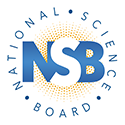
A SERIES OF FIELD HEARINGS
Hearing Prospectus
All One System
Developing Human Capital and Infrastructure for Science and Engineering
San Juan, Puerto Rico
October 7, 1998
SERIES PURPOSE --
The National Science Board - composed of 24 eminent scientists,
engineers, and educators - serves not only as the governing body
of the National Science Foundation (NSF), but also as policy advisor
to the President and Congress. The National Science Board Committee
on Education and Human Resources undertook a series of three field
hearings beginning in the Spring of 1998 to enable Board interaction
with NSF's performers and partners in various geographic regions.
The hearing topics and dates are as follows:
Enriching Lives through Informal Education
Los Angeles, CA, May 29, 1998
Dr. James Powell, Board Liaison
Hearing Agenda
Press Release, June 1, 1998
What Matters in K-12 Mathematics and Science? Effective Strategies
for Reform and Student Achievement
Chicago, IL, July 20, 1998
Dr. Claudia Mitchell-Kernan, Board Liaison
Hearing Prospectus and Agenda
Highlights of the NSB Field Hearing
(NSB98-154) Failing our Children: Implications of the Third
International Mathematics and Science Study
All One System: Developing Human Capital and Infrastructure for
Science and Engineering
San Juan, PR, October 7, 1998
Dr. Richard Tapia, Board Liaison
Hearing Agenda
Media Advisory
Each hearing:
-
illuminates the range, depth, and complexity of projects supported under NSF’s Education and Training portfolio;
-
engages the Board in discussion with the broader science, engineering, and education communities over the products of NSF's investments;
-
focuses national attention on NSF's impacts on educational systems around the U.S.; and
-
underscores the importance of the Board's role in shaping NSF programming and ongoing national policy debates.
THE PUERTO RICO HEARING --
Puerto Rico has done a remarkable job of synergistically combining and connecting Federal and private resources to improve education and build research capability. Through an array of NSF programs -- notably, the Experimental Program to Stimulate Competitive Research (EPSCoR), Statewide Systemic Initiatives (SSI), Minority Institutions of Excellence (MIE), Centers for Research and Education in Science and Technology (CREST), and Alliances for Minority Participation (AMP) -- the University of Puerto Rico has become a clearinghouse for interventions in the service of reform. And although this may be due to a unique intersection of history and demography, NSF believes it is a model for what is possible when the education and training of students is valued, and leaders think and act systemically to serve them all. Today, the University is the premier producer of Hispanic Ph.D.s in science and engineering.
This hearing will focus on the "human capital" generated through the interconnection of actors in the formal education system, kindergarten through graduate school and beyond. Atypical for higher education in general, colleges and universities in Puerto Rico complement and reinforce the K-12 teaching and learning of science and mathematics in developing human resources.
Among the questions to be addressed through presentations on activities pursued with at least partial support from NSF are:
1. How has a vision of rigorous academic preparation of all students guided development of an education infrastructure through NSF-sponsored projects?
2. What kinds of partnerships, especially with the industrial sector, connected, extended, and solidified distinct NSF projects?
3. What organizational entities within the political and educational sectors -- e.g., the Governor's office and resource centers -- have facilitated the adoption/adaptation of reforms?
4. How have research and evaluation informed ongoing efforts and helped to document and communicate the impacts of interventions on research and education at all system levels?
5. What has Puerto Rico done to integrate research and education that deserves to be emulated, institutionalized, and scaled-up in other U.S. school districts and communities?
6. How, in sum, has NSF played a catalytic role in mobilizing communities of educators and researchers to develop human capital through improved teaching, learning, and production of knowledge in science, mathematics, engineering, and technology?
7. What are the limits to generalizing from the Puerto Rico experience?
PRINCIPALS AND STAFF SUPPORT —
A combination of NSB principals and NSF staff plan and execute the hearings. A subset of NSB members participate as moderators on panels that hear invited testimony and pose questions. A member of the EHR Committee serves as NSB liaison, in coordination with a Local Arrangements Committee, NSB staff liaison, and designated NSF program director. OLPA provides national media support to ensure coverage of each event. The lineup for Puerto Rico is:
NSB/EHR Committee Chairman: Dr. Bob H. Suzuki
President
California State Polytechnic University
Pomona, CANSB Liaison: Dr. Richard Tapia
Professor of Computational & Applied Mathematics
Rice University
Houston, TXNSB Staff Liaison: Dr. Daryl Chubin, 703/306-2000, or dchubin@nsf.gov NSF Program Staff: Dr. A. James Hicks OLPA Staff: Mr. K. Lee Herring